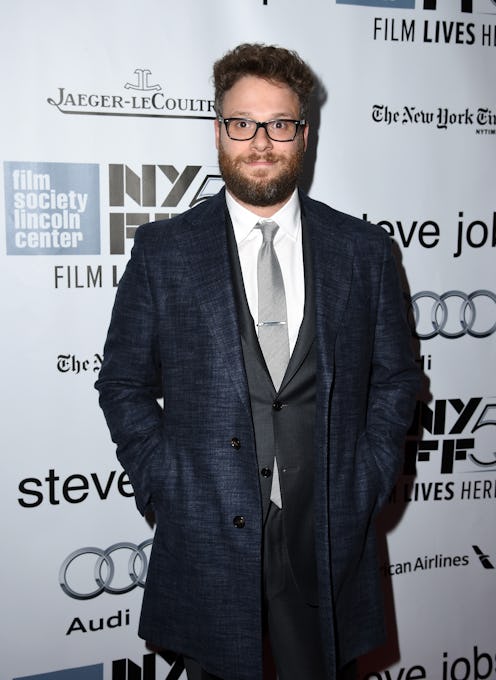Entertainment
Wozniak Sees A Lot Of His Partner In 'Steve Jobs'
In 2013, Ashton Kutcher and Josh Gad starred as the two Steves of Apple mythology, Steve Jobs and Steve Wozniak, in the biopic Jobs. The film was pretty widely panned, and cleared the way for another attempt at deconstructing the life of college dropout-cum-Apple founder Jobs. That second try is this year's Steve Jobs, starring Michael Fassbender as Jobs and Seth Rogen as his compatriot Woz, with a script by Aaron Sorkin and direction from Danny Boyle. And unlike the 2013 film, Steve Jobs brought Wozniak himself on board as a consultant — by no means a guarantee of his approval, but a good foundation for a biopic nevertheless. So what does Steve Wozniak think of Steve Jobs ?
Collider reported in 2012 that Wozniak would serve as a “tutor” to screenwriter Aaron Sorkin — but, though Wozniak briefly met with the cast, he never asked to see a script before filming began, according to Bloomberg. So he was as surprised as anyone else when an early trailer was released portraying a confrontation between Jobs and Wozniak. His qualms primarily lay in Rogen's portrayal of himself as a character in the film. “I don’t talk that way,” Wozniak told Bloomberg, explaining that “accuracy is second to entertainment in a movie like this.”
But he held a higher opinion of the overall message of the film, even if the minutiae of the dialogue weren't quite accurate. “I felt a lot of the real Jobs in the trailer, although a bit exaggerated,” he told Bloomberg. It's a recurring point of contention in films that try to capture the ascent of Jobs and Apple, Wozniak explained — even the real-life players can have conflicting memories of how particular events played out. Still, his trepidation at the early trailer didn't bar his enthusiasm for seeing the completed product.
Steve Jobs premiered at the Telluride Film Festival last month, but Wozniak had viewed a rough cut of the film prior to its debut. “I felt like I was actually watching Steve Jobs and the others,” he told Deadline shortly after the Telluride debut. Jobs was notoriously unsparing in his criticisms and negativity, and depictions of him have struggled with balancing a faithful interpretation of his story with humanizing the man behind such a prevalent cultural myth as the conception of Apple.
“When you see it portrayed dramatically, not the way it really happened but in a way that is emotionally graphic,” Wozniak told the BBC, “It really conveys what Steve Jobs was really like inside.” The film is cued to three product launches in Jobs's career, structuring its acts around his interactions with his closest advisors and Apple peers. Wozniak discussed conflicts and conversations with Sorkin during the film's research phase. While particular characters may not have actually said the lines or had the conversations Sorkin wrote into the script, those conversations happened somewhere.
“He didn't put them in what I consider necessarily accurate or fair ways in every case,” Wozniak continued. “I may not have been talking to Steve at those events. But they were 'in the air,' so you have to put them in someone's mouth to make a movie.”
To add to the myth, a Steve Jobs documentary has also been made, which Wozniak told the BBC he hadn't seen. It's rumored to be even more critical of Jobs than Steve Jobs, already a pretty indicting portrait of the Apple founder — but Wozniak also said that the weakness of the earlier Jobs film was that it was not critical enough. It seems that filmmakers have struggled to strike a balance between empathy for the subject and fair criticism at the same time. As far as Wozniak is concerned, though, what Steve Jobs might sacrifice in literal accuracy, it makes up in a broader faithfulness to the origins of the Jobs myth itself.
Images: Universal Studios (2)
